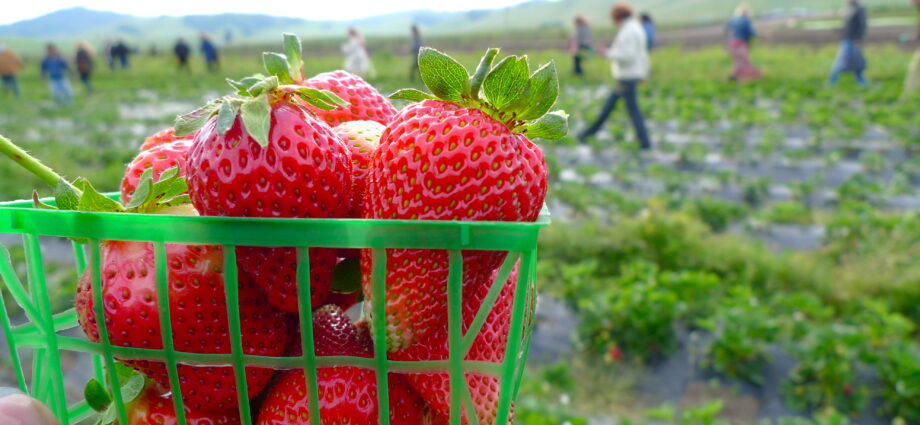
By Leong Chee Onn, International Medical University, Malaysia
February 28, 2023
Advances in the field are revolutionary but require safeguards to curb misuse.
The thought of growing rice in the ocean sounds like something out of science fiction but with new advances in DNA research and gene sequencing, it’s close to becoming a reality. Likewise cultivating strawberries which could potentially be grown in tropical areas such as Malaysia.
Strawberries are traditionally grown in temperate climates and exported across the world to Southeast Asia, which means the fruit is expensive. But new DNA technology allows them to be grown in tropical countries.
As the world marks the 70th anniversary of Crick and Watson’s mapping the structure of the DNA molecule, genome sequencing has the potential to revolutionise crop breeding and plant biotechnology, improving yields, and reducing food waste.
DNA sequencing can help identify genetic markers that make crops more resistant to disease and pests, improving crop productivity, and reducing the need for harmful pesticides and fertilisers.
In Malaysia, where agriculture is a significant source of employment and food security, the availability of DNA sequencing could lead to more sustainable agricultural practices and increased food production.
Recent advancements in DNA sequencing technologies have made it increasingly cheap and accessible, with significant implications for our societies, particularly in developing countries such as Malaysia.
The implications of widely available DNA sequencing for our societies are both positive and negative and must be carefully considered in the context of the socio-cultural, economic, and political factors that influence access, use, and regulation of this technology.
One of the most significant positive implications of widely available DNA sequencing is its potential to revolutionise healthcare.
Genetic testing and personalised medicine based on DNA sequencing can help identify individuals who are at risk of developing certain diseases and it can help develop targeted prevention and treatment strategies.
In Malaysia, where genetic diseases such as thalassemia and cystic fibrosis are prevalent, the widespread availability of DNA sequencing could improve healthcare outcomes for affected individuals and their families.
Additionally, DNA sequencing can help researchers develop new drugs and treatments for diseases, leading to improved health outcomes and reduced healthcare costs.

DNA sequencing also provides valuable insights into human evolution and history, which can help us understand and appreciate our shared heritage. The genetic diversity of Malaysia is unique, with significant contributions from multiple ethnic and cultural groups.
Studying the genomes of different populations can help us trace the migration patterns of our ancestors and better understand the history of our country and its people.
However, there are also negative implications of widely available DNA sequencing that must be considered.
One significant concern is the potential for genetic discrimination, where individuals may be unfairly discriminated against based on their genetic information.
Employers or insurance companies may use this information to make hiring or coverage decisions, leading to a situation where individuals with certain genetic predispositions are unfairly disadvantaged.
To mitigate this risk, policies are called for to protect individuals’ privacy and prevent genetic discrimination.
![Sony PlayStation Store 110 - Sony, [Digital]](https://i0.wp.com/i5.walmartimages.com/asr/5d3e8d52-3525-4e75-b862-10394c67a31c.c3f21de9f6a2f65537248191772f43b3.png?w=1380&ssl=1)
Another concern is the potential misuse of genetic information. If individuals’ genetic information falls into the wrong hands, it could be used for nefarious purposes such as blackmail or identity theft.
This could lead to a situation where individuals are afraid to share their genetic information, even if it could be used to improve their health or well-being. Regulations and safeguards must be put in place to protect the privacy and security of genetic data.
Additionally, the widespread availability of DNA sequencing could exacerbate existing social inequalities.
If certain populations do not have access to this technology, they may be left behind in terms of healthcare and agricultural advancements. This could lead to a situation where some individuals are unfairly disadvantaged due to factors outside of their control.
Work will be required to ensure DNA sequencing technology is accessible to all populations, regardless of socioeconomic status or geographic location.
Finally, as DNA sequencing technology becomes more widely available, it is crucial to establish regulations that protect individuals’ privacy and prevent the misuse of genetic data.
One important aspect of regulation is data sovereignty, which refers to the right of individuals to control their own genetic data and decide how it is used. Data sovereignty is especially important in developing countries like Malaysia, where there may be concerns about data ownership and control.
Subscribe to our newsletter.
There is still some way to go to ensure equitable access and use of DNA sequencing technology in Malaysia. To reap benefits, policymakers could expand access to genetic testing and personalised medicine in rural and underprivileged areas where healthcare resources may be limited.
Leong Chee Onn is Associate Professor at the School of Pharmacy, International Medical University, Malaysia and CEO of AGTC Genomics. He declares no conflict of interest.
Originally published under Creative Commons by 360info™.


